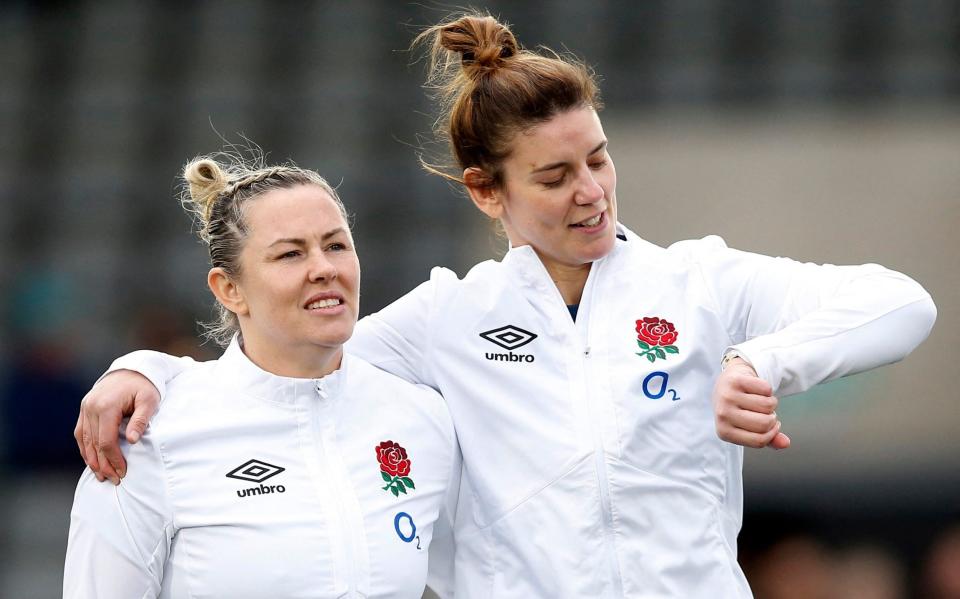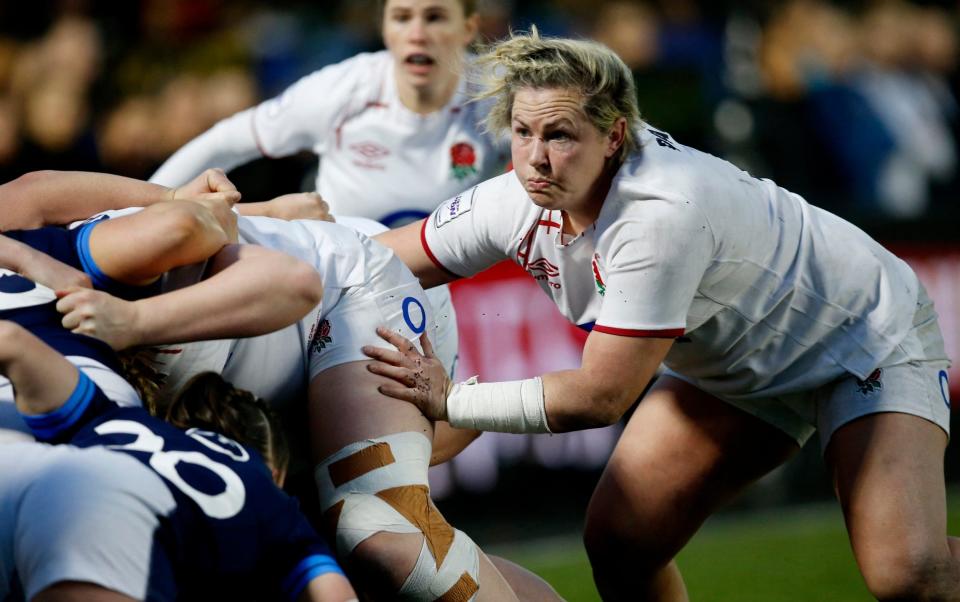Marlie Packer must not copy Sarah Hunter’s captaincy style

The first time I met Marlie Packer, when she was called up as an injury replacement while we were on tour in Canada in 2011, I recognised how authentic she was. She wasn’t trying to impress anyone or outdo anyone, she just wanted to be really good at rugby and backed herself even from a young age.
There are different types of back rows but she wasn’t your typical athlete and didn’t have a muscled build. That is what has been interesting since – she has created her own style, she isn’t trying to be like anyone else. It took time for her to build her craft and over the past couple of years we’ve seen the best of Marlie.
Put simply, Marlie is hard. She puts her head where nobody else would want to put their feet and I love that about her. Her stats are quite outstanding too, they are crazy for any back row. Her try count is one thing – she is scoring hat-tricks and going into games with that mindset of knowing she will score so it is rare now not to see her name on the scoresheet – but it is also her tackle count, her turnovers, her carries. Against Scotland at the weekend, in particular, she carried a huge amount.
She leads by example and that is what I expect her to do as captain this Sunday against Italy. The last time she was captain was at the Rugby World Cup against South Africa and it would have been very different then because she had the likes of Sarah Hunter and Emily Scarratt to lean on.
Now, with Sarah having retired after the win over Scotland and Emily injured, she does not have that level of experience to lean on. So she needs to recruit the right leadership team around her, the likes of Zoe Aldcroft and Poppy Cleall, who both captained the Red Roses last season. It also helps that she plays with Holly Aitchison, the fly-half, at Saracens. While there are not as many experienced leaders as there normally would be with everyone fit, this could be part of the evolution of this team. The Six Nations will only get harder as it goes on and there will be challenging times, so younger players need to step up to support Marlie.
Crucially, Marlie should not try to copy Sarah Hunter in terms of captaincy style. When I took over as captain at Saracens when people like Helen Clayton – a legend for England and Saracens – had been in the role previously, I remember thinking, ‘Maybe I should be like her’. But if you’re not authentic people will not buy into it. That is the big thing with leadership, you need to be yourself.

England men have had Ellis Genge as captain this season; he is from the West Country like Marlie and that shows in their character – they’re very confident, committed and real grafters. Marlie is very different to Sarah, who made her debut as captain in 2015 and had time to build. Sarah is very much a typical public speaker and is about the detail. Marlie is more, ‘See what I do, follow my lead’.
She has dealt with the decision-making side of captaincy well so far at Saracens but the biggest skill she has to develop is forging relationships with referees. Sarah Hunter was very good at speaking to referees, as was Richie McCaw in the men’s game. It’s a real craft, to make sure you do not speak to them in a condescending way and also picking your moments of when and how often you speak to them.
As a flanker, Marlie is in breakdowns and amidst the confrontational moments, so it’s also about finding that balance of not getting penalised yourself. In last year’s Six Nations, Marlie conceded seven penalties, which was the most of any England player. It’s a fine balance to stay on the right side of the referee and develop those relationships.
Marlie may be taking over from Sarah as captain, but she knows she cannot rest on her laurels because of the quality of players in her position. When I played seven, Marlie and Heather Fisher were coming behind me, and that healthy competition pushes you on to get better. Sadia Kabeya played at six at the weekend but is normally a seven so those two are fighting for the same jersey and will push each other to be better.
I can only see Marlie getting better as the Six Nations progresses. She steps up when it matters and likes a big occasion, so with more big decisions to make she will come into her own. She will take charge from the front and lead this England team into a new era for women’s rugby.

